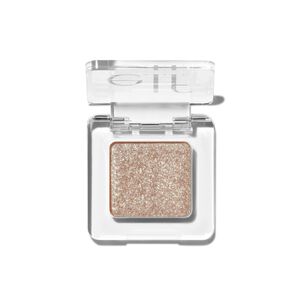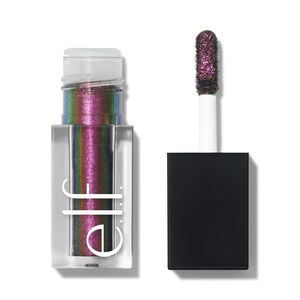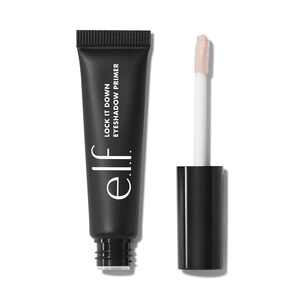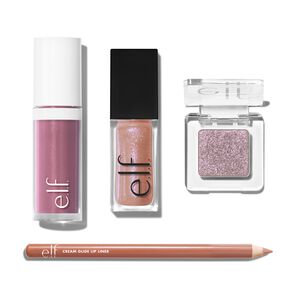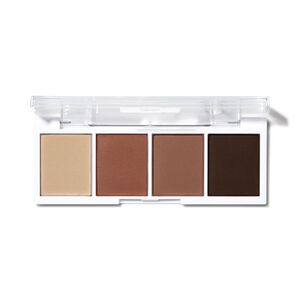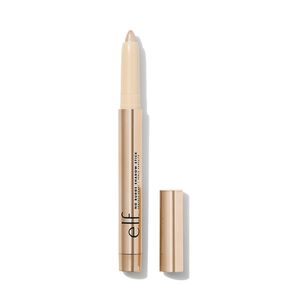$6
Color
FREE SHIP & 2 FREE MINIS WITH $35+, CHOOSE ADDITIONAL GIFT WITH $50+!
$8
Color
FREE SHIP & 2 FREE MINIS WITH $35+, CHOOSE ADDITIONAL GIFT WITH $50+!
$7
FREE SHIP & 2 FREE MINIS WITH $35+, CHOOSE ADDITIONAL GIFT WITH $50+!
$3
Color
FREE SHIP & 2 FREE MINIS WITH $35+, CHOOSE ADDITIONAL GIFT WITH $50+!
$5
Color
FREE SHIP & 2 FREE MINIS WITH $35+, CHOOSE ADDITIONAL GIFT WITH $50+!

EYESHADOW FAQS
The best eyeshadow for you is really a matter of personal preference of what is comfortable for you. There are a few factors to consider when choosing the right eyeshadow for yourself.
1. First, consider your skin tone. If you have fair skin, neutral or cool-toned shades like taupes, grays, and pastels tend to be more flattering. If you have medium to olive skin, warm-toned shades like browns, coppers, and oranges can complement your complexion. For those with darker skin tones, rich jewel tones like purples, blues, and greens can make your eyes pop.
2. Also, consider the occasion and the eyeshadow look you want. For everyday, neutral shades in matte or satin finishes are versatile and natural-looking. If you're going for a glam or festive look, shimmer, glitter or metallic eyeshadows can add a sparkle.
3. Lastly, consider the formula of the eyeshadow. Cream, powder, liquid eyeshadow formulas, and even a shadow stick each have their own benefits and drawbacks.
Eye makeup is the most exciting creative tool in your makeup kit—there are so many types of shadows including cream, powder, and eyeshadow sticks and so many textures including neutral and matte shades, shimmer, glitter, and metallic finishes that can all be combined for all eye colors and eye looks. Below is a basic technique for applying eyeshadow. Once you master the basics, there’s no limit to the looks you can create!
-
Start by selecting a base shade—something close to your skin tone such as pearl, beige, or peach. Use a flat eyeshadow brush and sweep this shade over your lids and up to your brow bone
-
Next, choose a darker color in the same family as your base color. For example, If you started with a beige as your base, use a medium or dark brown shade. With a domed blending brush, sweep the darker shadow along your eye socket, following the shape of your eye between your brow bone and eyelid. This darker shade will contour and define your eye. With a small, flat eyeshadow brush, use a darker shade to line your upper and lower lash lines. Use the brush to lightly blend/smudge the powder or cream formula
-
Finally, place a light, shimmery powder, or cream eyeshadow directly under the brow and in the inner corner of each eye for a bit of brightness.
The challenge of applying eyeshadow to hooded eyes comes from the fact that little to none of your eyelid is visible when your eye is open making it difficult to see your eyeshadow. Below are some tips for making the most of your shadow if you have hooded eyes.
-
Place the base powder or cream above the crease, thereby extending the color to a place where it can be seen.
-
Apply a lighter shade from a neutral or nude eyeshadow palette beneath the brow to lighten, brighten and highlight the entire eye. You can also extend your shadow outward from the outward corners of each eye for a winged effect.
-
Finally, apply with your eyes open rather than closed or half closed to get the best sense of the finished look.
Because blue is a cool color, warm shades will provide a strong contrast and really help your blue eyes pop! Good choices include orange, warm brown, peach, and terracotta. If you prefer to harmonize your blue eyes, choose a high pigment eye palette with shades of blue, plum, purple or berry.
Green eyes generally contain flecks of gold or red, so shades in the gold or copper family are very flattering. Maroon, coral, orange, brick, and rose gold are all great choices. Green eyes can also look dramatic in purple eyeshadow colors such as lavender, lilac, violet, plum, or magenta. For a subtle, natural look, choose warm neutral tones such as beige or brown.
Since hazel eyes are a blend of green and brown, there is a wide range of eyeshadow shades that can be flattering. Browns, golds, and greens will enhance the richness of hazel eyes. Bronze shades will complement the warmth of hazel eyes, whereas purple eyeshadow shades such as plum and violet will create a dramatic contrast.
There are four types of eyeshadow formulas to choose from including powder, creams, liquids and shadow sticks.
Powder eyeshadows are the most common and user-friendly for beginners. They blend easily and come in endless colors and finishes allowing you to create a variety of looks.
Some key benefits of powder eyeshadow:
-
Easy to apply and blend
-
Buildable coverage - you can layer and intensify the color
-
Easily customized looks - mix and match shades
-
Great for practicing and perfecting eyeshadow techniques
Cream eyeshadow and liquids can be trickier to work with. They set more quickly and are harder to blend in.
\
